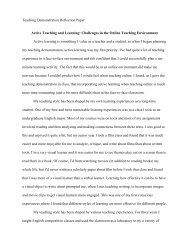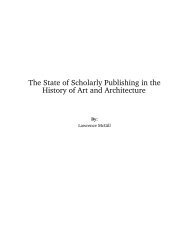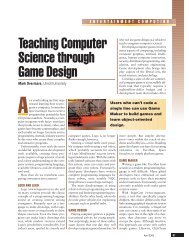South Carolina Public Library Economic Impact Study - Illinois
South Carolina Public Library Economic Impact Study - Illinois
South Carolina Public Library Economic Impact Study - Illinois
Create successful ePaper yourself
Turn your PDF publications into a flip-book with our unique Google optimized e-Paper software.
Executive Summary and Key FindingsTaxpayers rightfully want to understand what benefits they receive from the taxdollars that they entrust to <strong>South</strong> <strong>Carolina</strong> governments. <strong>Public</strong> libraries are one of theinstitutions supported by these tax dollars. The purpose of the study reported here was todetermine economic benefit of public libraries for <strong>South</strong> Carolinians and to what extentthey feel the public library contributes to their overall economic wellbeing.A variety of approaches have been used in the United States and internationally tostudy the benefits that public libraries bring to those who fund or support them. Theseefforts also have a variety of names: economic impacts, economic benefits, return oninvestment (ROI), taxpayer benefit, and so forth. The study techniques have generallyinvolved analysis of surveys of users/non-users of public libraries, analysis of usestatistics collected by the libraries, and a combination of the two techniques. This studyused a combined approach.The study consisted of two phases. The first phase was to gather and analyze datadirectly from users to determine their perceived value of <strong>South</strong> <strong>Carolina</strong> public librariesin four areas: General Use, Use for Business, Use for Personal Investment, and Use forJob Seeking. This was a general population, self-selected sample of individuals whocame into public libraries or visited the public library web sites during March 2004. Theargument for using this sample is that the perceptions of those who make use of a serviceprovide a good measure of its value. The actual value or impact of such services wouldbe difficult if not impossible to identify or measure with available methodologies. Marchwas selected because it usually is considered to be an “average use” month with fewerholidays, school opening or closing, and other special events that could affect the use ofpublic libraries during other months.Among the findings are indications that the public library:o Improves overall quality of life: 92% said yeso Increases local property values: 47% said yeso Attracts new businesses to the community: 38% said yeso Attracts patronage to local businesses: 44% said yeso Enhanced personal fulfillment: 73% said yeso Nurtures a love of reading: 73% said yeso Is a source of personal enjoyment: 64% said yeso Helps manage personal finances or saved money: 32% said yes






